unit 2 English around the world Learning about language
文档属性
| 名称 | unit 2 English around the world Learning about language | 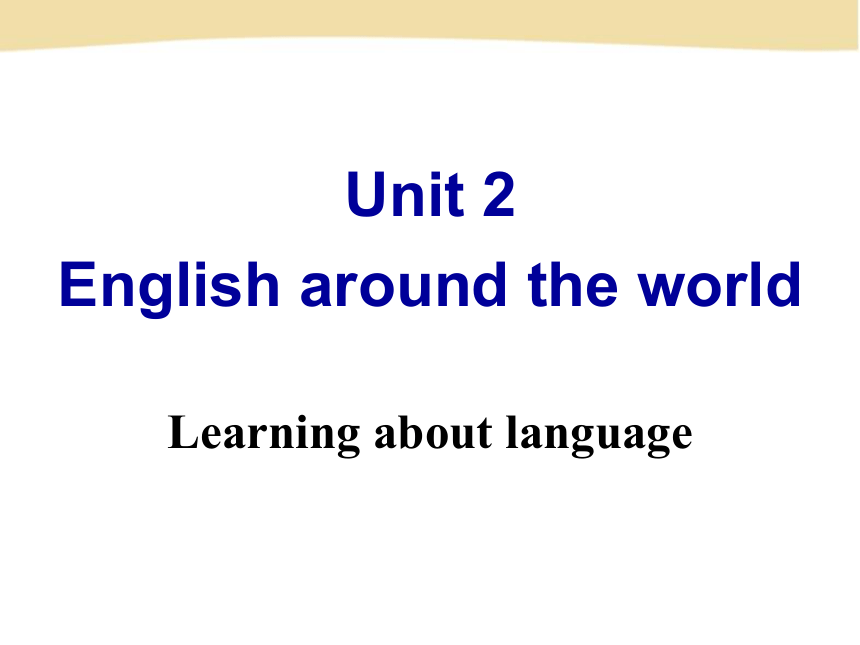 | |
| 格式 | zip | ||
| 文件大小 | 439.4KB | ||
| 资源类型 | 教案 | ||
| 版本资源 | 人教版(新课程标准) | ||
| 科目 | 英语 | ||
| 更新时间 | 2014-08-11 16:22:29 | ||
图片预览

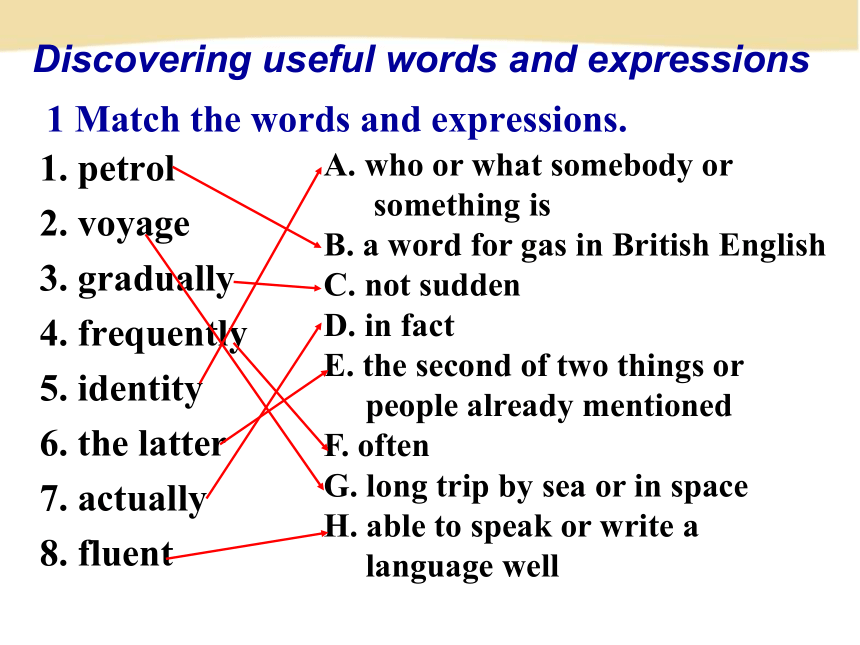
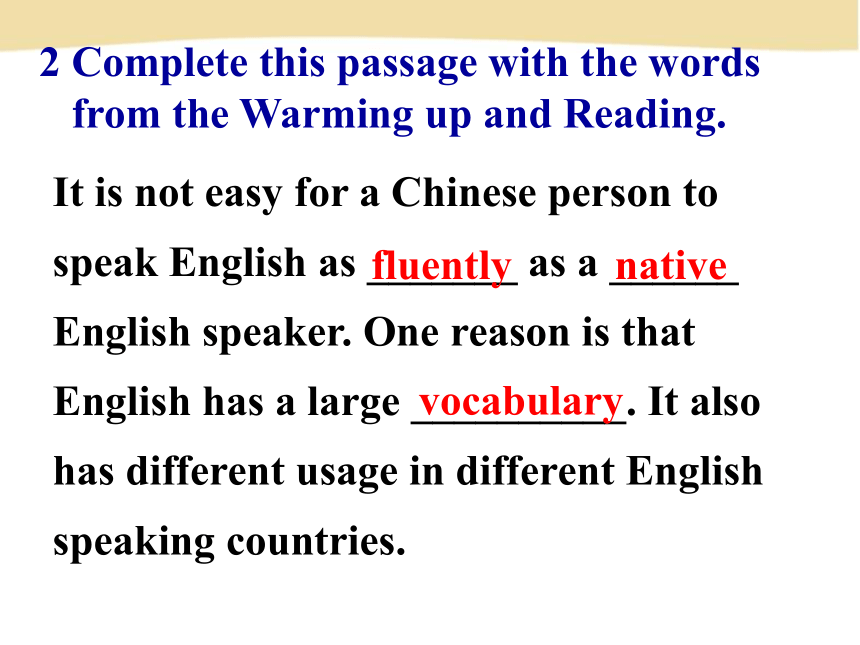
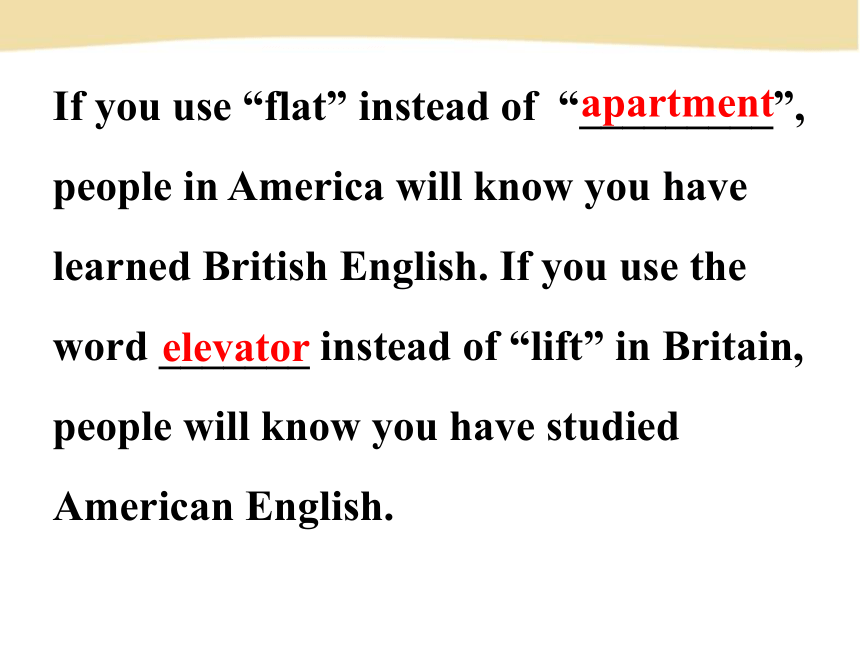
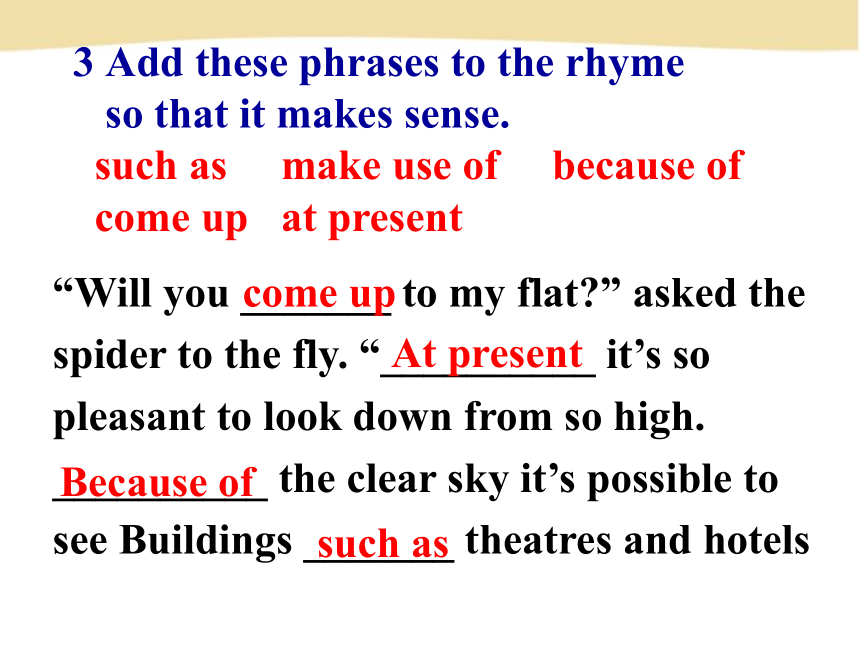
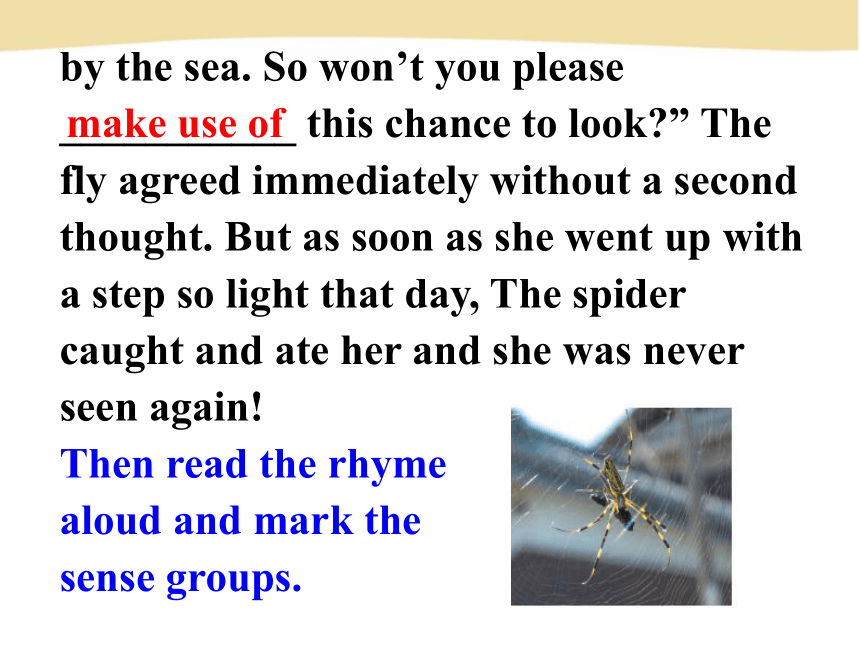
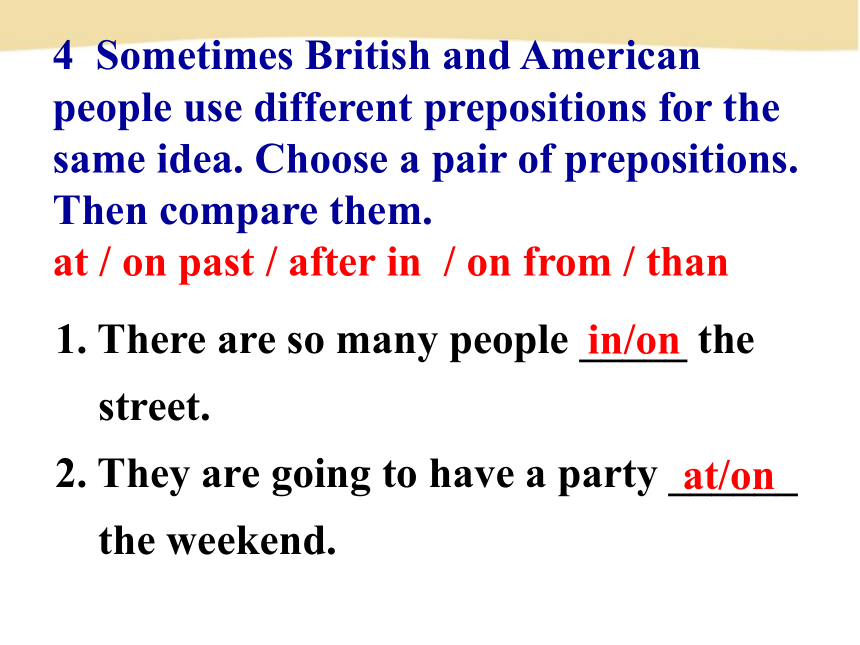
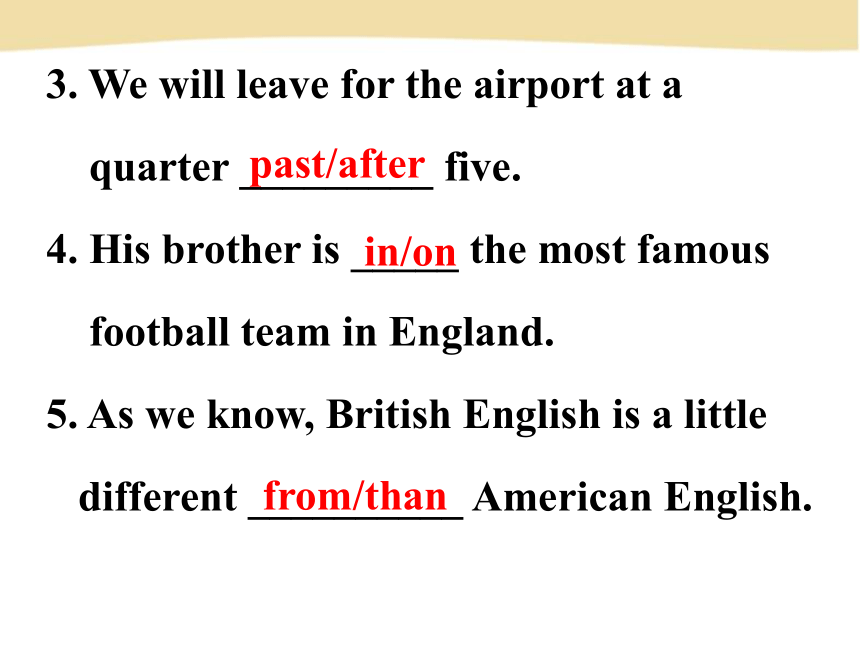
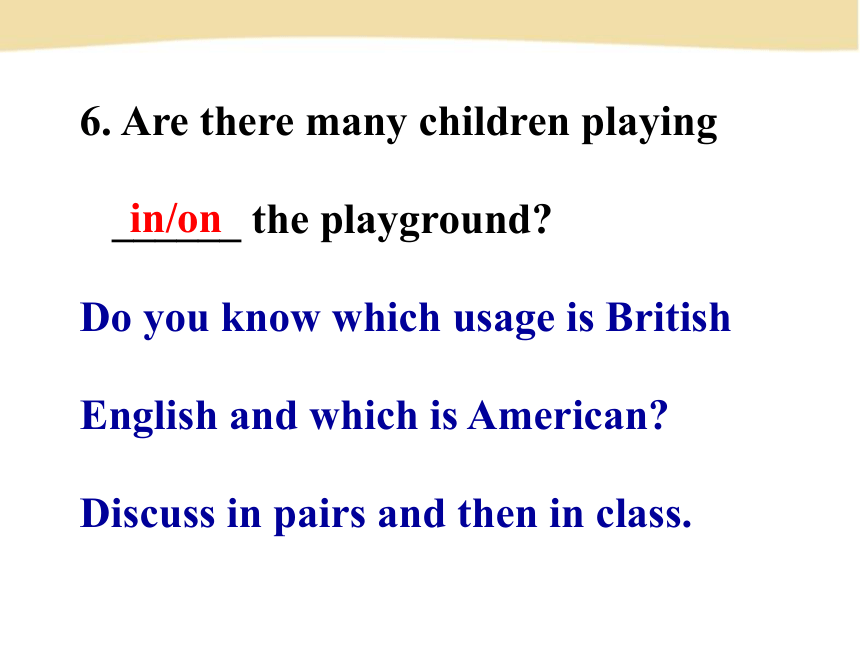
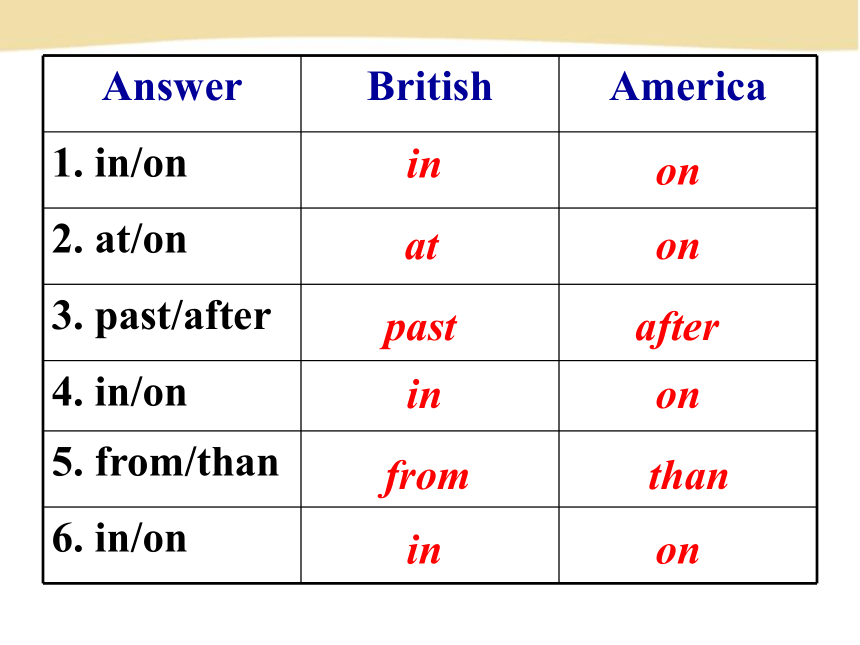
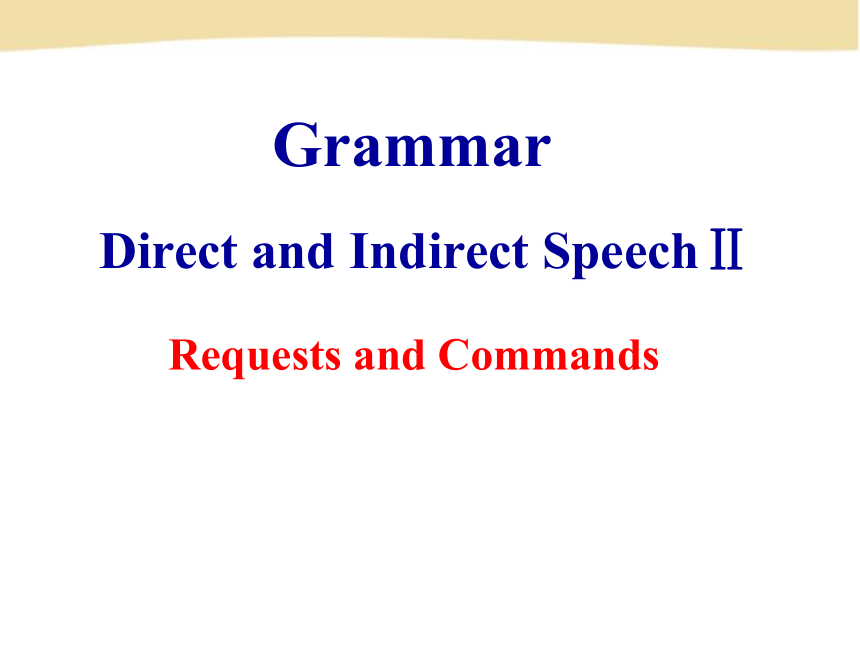
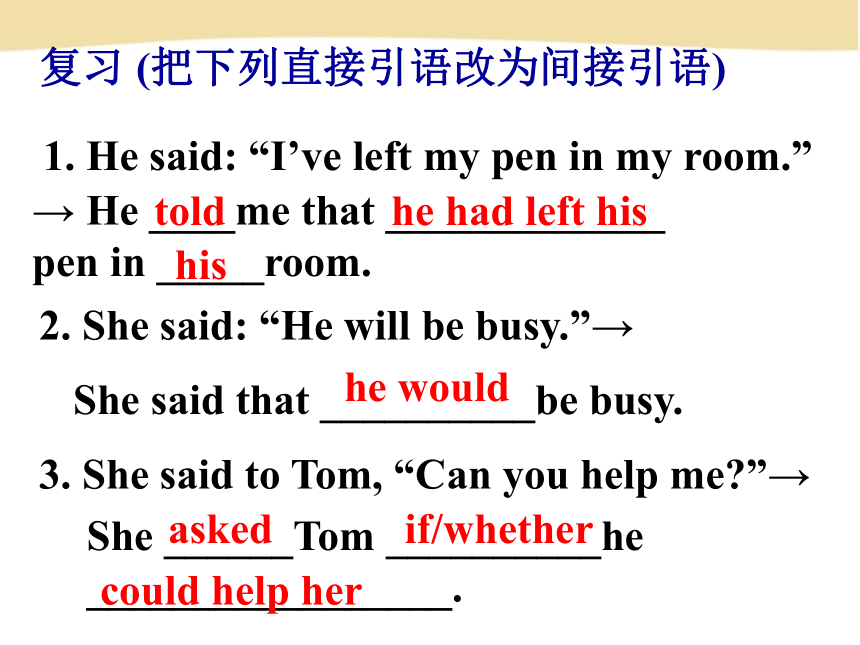
文档简介
课件64张PPT。Unit 2
English around the world
Learning about language1 Match the words and expressions.1. petrol
2. voyage
3. gradually
4. frequently
5. identity
6. the latter
7. actually
8. fluentA. who or what somebody or
something is
B. a word for gas in British English
C. not sudden
D. in fact
E. the second of two things or
people already mentioned
F. often
G. long trip by sea or in space
H. able to speak or write a
language wellDiscovering useful words and expressionsIt is not easy for a Chinese person to speak English as _______ as a ______ English speaker. One reason is that English has a large __________. It also has different usage in different English speaking countries. nativevocabularyfluentlyComplete this passage with the words
from the Warming up and Reading. If you use “flat” instead of “_________”, people in America will know you have learned British English. If you use the word _______ instead of “lift” in Britain, people will know you have studied American English.apartmentelevator“Will you _______ to my flat?” asked the
spider to the fly. “__________ it’s so
pleasant to look down from so high.
__________ the clear sky it’s possible to
see Buildings _______ theatres and hotelsAdd these phrases to the rhyme
so that it makes sense.
such as make use of because of
come up at present come up At present Because ofsuch as by the sea. So won’t you please
___________ this chance to look?” The
fly agreed immediately without a second
thought. But as soon as she went up with
a step so light that day, The spider
caught and ate her and she was never
seen again!
Then read the rhyme
aloud and mark the
sense groups. make use of 1. There are so many people _____ the
street.
2. They are going to have a party ______
the weekend. 4 Sometimes British and American people use different prepositions for the same idea. Choose a pair of prepositions. Then compare them.
at / on past / after in / on from / thanin/onat/on3. We will leave for the airport at a
quarter _________ five.
4. His brother is _____ the most famous
football team in England.
5. As we know, British English is a little
different __________ American English. past/afterin/onfrom/than6. Are there many children playing
______ the playground?
Do you know which usage is British
English and which is American?
Discuss in pairs and then in class. in/oninatonafterfrompastthanoninoninonGrammarDirect and Indirect SpeechⅡRequests and Commands?1. He said: “I’ve left my pen in my room.”
→ He ____me that _____________
pen in _____room.She said that __________be busy.2. She said: “He will be busy.”→ 复习 (把下列直接引语改为间接引语)She ______Tom __________he
_________________.3. She said to Tom, “Can you help me?”→toldhe had left his
hishe wouldaskedif/whethercould help her1. 陈述句的间接引语—连接词用_____, 在口语中可省略。引述动词用_________,等。
例如:
He said: “I’ve left my book in my room.”
→ He _____me that ______________book
in _____room. 复习规律thatsaid, toldtoldhe had left hishis2. 疑问句的间接引语。一般疑问句后连接
词用____________, 而引述选择疑问句时
只能用_________, 引述动词用______, 没有
间接引语的可以加一个间接宾语me,
him等。如:
She said to Tom, “Can you help me?”
→ She ______Tom__________________
help_____. if 或whetherwhetheraskedaskedif /whether he couldher3. 特殊疑问句用________________作连接
词, 改为陈述语序。例如: → The teacher asked me ____________________it. The teacher asked, “How did you repair it?”原句中的疑问词how I had repaired
4. 如何变时态:
直接引语 间接引语一般现在时
一般将来时
现在进行时
一般过去时
现在完成时
过去完成时一般过去时
过去将来时
过去进行时
过去完成时
过去完成时
过去完成时如:
1) She said. “I have lost a pen.”
→She said she _________a pen.
2) She said. “We hope so.”
→She said they _______so.
3) She said. “He will go to see his friend.”
→She said he _________to see his friend.had losthopedwould go“The earth moves around the sun and
the moon moves around the earth”, the
teacher told me.
→ The teacher told me the earth moves
around the sun and the moon moves
around the earth.
1)直接引语是客观真理。但要注意在以下几种情况下。在直接
引语变为间接引语时, 时态一般不变化。
Xiao Wang said. “I was born on
April 2l, 1980.”
→Xiao Wang said ____was born _________________2)直接引语中有具体的过去某年、某月、
某日作状语, 变为间接引语时, 时态不变。heon April 20, 1980.
3)直接引语中被引述的部分是反复出现的,
习惯性的动作或说话时情况仍然存在的,
变间接引语时, 时态保持不变。 The boy said to us, “I usually get
up at six every day.”→ The boy told us ____usually ____up at six every day. hegets
She said, “I went there when I was
six years old.”→ She said _____________there when _________six years old.
4) 若直接引语中含有when, since, while
等引导的表示过去的时间状语从句,
变间接引语时, 从句时态不变。如: she had goneshe was5) 若直接引语的谓语中含有would,
should, might, must, used to, ought to,
had better 等动词时。 如:
She said, “We should help each other.”
→She said we should help each other. 5. 如何变状语:
直接引语变间接引语, 状语变化有其内在规律, 时间状语由“现在”改为“原来”例: now变为______, yesterday变为_______________, today变为________。
地点状语, 尤其表示方向性的, 或用指示代词修饰的状语, 由“此”改为“彼”。如:He said, “These books are mine. ”
→He said ______books_________.thenthe day beforethat daythosewere his指示代词、时间状语、地点状语的变化:
this→_____; these→______; now→_____;
yesterday→_______________;
today →___________;
tomorrow→_____________;
next week (month, year) →
________________(month, year);
ago →_________; here→ _______.thatthosethenthe day beforethat daythe next daythe next weekbeforethere1. Could I use your bathroom?request2. Put your coat in the closet.command3. Speak quietly on the phone, please.requestRequests or Commands?4. Will you help me with my homework
this afternoon?request5. Could you meet me at four?request6. Take your shoes off before you enter the room.
command7. Go to bed right now.
8. Could you help me with my
English please?
9. Open the door at once.
10. Would you please give me
that book? requestcommandcommandrequestDirect speechRequests: Do ..., please.
Can you...?
Could you ...?
Will you ...?
Would you ... ? Commands: Do...
Don’t ...Indirect speech Requests: A asked B to do sth.
A asked B not to do sth.Commands: A told/ordered B to do sth.
A told/ordered B not to do sth.祈使句的间接引语—采用“动词+宾语
+不定式”结构。
told/asked/ordered/ commanded sb.
(not) to do sth.祈使句的直接引语和间接引语如果祈使句是表示请求, 间接引语的
动词常用ask; 如果是表示命令, 间接
引语的动词常用tell, order, command等。不定式
The officer ______
him _____________
post.orderednot to leave histhat 引导的宾语从句
I suggested to him that _____________
start at once.we (should)He said, “Let’s go to the film.”
→He ________ _______to the film.
或 He __________that _____ ________ go to see the film.直接引语如果是以“Let’s”开头的祈使句,
变为间接引语时, 通常用 “suggest +
动名词(或从句(should+do)”。如: suggested goingsuggestedwe should
直接引语 (变化前)感叹句
He said: “How happy I am!”
间接引语(变化后) that/what/how引导的宾语从句
He said how happy
___ _____He said ____ __ ___very happy.
he was.
thathe was
感叹句 直引: 主语+动词+“感叹句”
间引: 主语+动词+陈述句
e.g. He said, “What a fine day it is!”
= He said, “_____fine the day___!”
?He said ____ __fine day it____.
=He said ____fine the day____.
Howiswhat awashowwas1. “Please close the window,” he said
to me.? →He ______ me _____ the window. A. said to; to close
B. told to; closing C. asked; to close
D. said to; please closeChoose the best answer.C 2. He said, “Don’t do that again.”
He _____ me _______ that again.
A. said to me; not to do
B. said to me; don’t do
C. told me; don’t do
D. told me; not to doD 3. “Don’t put it on my hat.”his wife
said to him.
His wife told him ____ put it on ___hat.
A. don’t, his B. don’t, her
C. not to, his D. not to, her
D 4. Rose asked Tom, “Did you see my
purse?”
Rose asked Tom _____.
A. whether that he had seen her purse
B. whether he had seen her purse
C. that whether he had seen her purse
D. that if he has seen her purseB 5. He asked me ________ with me.
A. what the matter is
B. what the mater was C. what’s the matter
D. what was the matterC 解析: 如果直接引语是“What’s the
matter?” “What’s wrong?” “What’s the
trouble?”, 变间接引语时语序不变。6. He asked, “Are you a Party member
or a League member?”
→He asked me ______. A. am I a Party member or a League member? B. was I a Party member or a League member
C. whether I was a Party member or a League
member D. whether was I a Party member or a
League member C 解析: 选择疑问句要变成whether引导的宾语
从句。 7. “You’ve already got well, haven’t
you?” she asked. →She asked _______. A. if I have already got well, hadn’t you? B. whether I had already got well C. have I already got well
D. had I already got well.解析: 反意疑问句要变成whether或 if
引导的宾语从句。B 8. He asked ______ for the computer.
did I pay how much B. I paid how much
C. how much did I pay D. how much I paidD 9. Tom asked Jack _____.
A. why he was so excited
B. why was he so excited
C. why is he so excited
D. why he is so excitedA10. The boy said, “May I go along with
you?” The boy asked me ____.
A. if I might go along with you
B. if he might go along with you
C. if he might go along with me
D. if he might go along with the boyC 11. He said, “Mother, the boy is very
naughty.”
→He ____ very naughty.
A. said his mother that the boy was? B. said to his mother that the boy is C. told his mother that the boy was? D. spoke to his mother that the boy was C12. “Have you seen the film?” he asked me. →He asked me _______. A. had I seen the film
B. have I seen the film C. if I have seen the film
D. whether I had seen the filmD13. “I am a teacher, ” Jack said.
→He said _____. A. that I am a teacher
B. I was a teacher
C. that he is a teacher
D. he was a teacherD14. The teacher asked us ____ so much noise.
A. don’t make B. not make
C. not making D. not to make
15. Visitors ____ not to touch the exhibits.
A. will request B. request
C. are requesting D. are requestedDD “Could you pass me the salt?” Mary
said to me.
→ Mary _____me___________________.
2.?“Show me your license, please.” the
policeman said to the driver.
→ The policeman ____the driver把直接引语转换为间接引语。to show ____the license.
askedto pass her the salt.told him 3. The teacher said to me, “Can you pass
on the book to Tom?”
→
4. Mother said to Li Ming, “Stop playing
computer games!”
→ Mother _______Li Ming__________
playing computer games. The teacher _____me ___ ___ __
the book to Tom.askedto pass on
orderedto stop5. The teacher said to the students,
“Don’t waste your time.” → The mother _____Tom ___get up early.6. The mother said, “Tom, get up
early, please.”→ The teacher ____the students
___ ___waste _____time. toldnot to
theiraskedto The landlady asked him to
put his coat in the closet.→“___ ___ _______put _____coat in the closet?” said the landlady.把间接引语转换为直接引语。 The landlady asked him not to
put his coat on the bed.→“___ ___ ______ ___put _____coat
on the bed?” asked the landlady.Will you pleaseyourWill you please notyour2. The young father told his
children to stand still.→“______ _____,” the young father _____ ___his children.The young father told his
children not to move.→ “_____ _____,” the young father
_____ ___his children.Stand stillsaid toDon’t move said to 3. Mother told me to lock the
door after midnight.→ “____ ___ ____after midnight,” said Mother.Mother told me not to leave the door open after midnight.→“_____ leave the door open after
midnight,” said Mother.Lock the doorDon’tKeys to the Exercises 3 on page 121.Request2. Command
3. Request4. Request5. Request6. Command
1.The children ______their teacher __ _____a song for_____.askedto sing2.The mother ______ her child __ ___ __ the radio.
orderedto turn off3.The dentist ____ a patient __ ____ ____mouth, so __ _____see the bad tooth clearly.
askedto open hishe couldthem
4.The secretary _____the woman on the phone ___ ____ ___for a minute.
askedto hold on5.John _____his classmate ________ __ ____ borrow ____pen.
askedif /weather he couldhis6.The teacher _______his student __ ____ ___to ____office.
orderedto come uphisHe said, “My sister was here for
three days.”
He said that ____ sister ____ _____
_____ ___ three days.
2. She said, “I’ll go there tomorrow.”
She said that ____ ______ go there
____________.hishad beenthere forshe wouldthe next day练一练3. She said, “Did you see him last night?”
She _____ me __________________
him _______________.
4. “When did you go to bed last night?”
Father said to Peter.
Father _____ Peter ______________
____ the night ______.askedif/whether I had seenthe night beforeaskedwhen he went tobeforebed5. The host said to us, “Please come to
see us again if you have time.”
___________________________
_______________________.
6. The teacher said to me,
“Write a letter to your parents.”
____________________________
____________________________The host asked us to go to see
them again if we had timeThe teacher told me to write a
letter to my parents. 4. Make some dialogues using commands and requests and retell them in indirect speech.
A bear is moving towards a boy. What do you say to the boy to make sure that he is not hurt?
2. An English teacher is telling her students what they must do for homework. A student cannot hear the teacher very clearly. What should he say to his classmate to find out what to do?
Think of more situations for your conversations.
Sample
Situation1:
Tom : Take care! A bear is moving towards you.
Boy : Oh, who can help me?
Tom : Stay calm and don’t move.
Boy : …
Tom told the boy to take care, for a bear is
moving towards the boy.
The boy asked who could help him.
Tom told the boy to stay calm and not to move.
Homework
Review the Grammar rules
--Direct Speech and Indirect
Speech.
2学生双语报T4版语法小测.Thank You!
English around the world
Learning about language1 Match the words and expressions.1. petrol
2. voyage
3. gradually
4. frequently
5. identity
6. the latter
7. actually
8. fluentA. who or what somebody or
something is
B. a word for gas in British English
C. not sudden
D. in fact
E. the second of two things or
people already mentioned
F. often
G. long trip by sea or in space
H. able to speak or write a
language wellDiscovering useful words and expressionsIt is not easy for a Chinese person to speak English as _______ as a ______ English speaker. One reason is that English has a large __________. It also has different usage in different English speaking countries. nativevocabularyfluentlyComplete this passage with the words
from the Warming up and Reading. If you use “flat” instead of “_________”, people in America will know you have learned British English. If you use the word _______ instead of “lift” in Britain, people will know you have studied American English.apartmentelevator“Will you _______ to my flat?” asked the
spider to the fly. “__________ it’s so
pleasant to look down from so high.
__________ the clear sky it’s possible to
see Buildings _______ theatres and hotelsAdd these phrases to the rhyme
so that it makes sense.
such as make use of because of
come up at present come up At present Because ofsuch as by the sea. So won’t you please
___________ this chance to look?” The
fly agreed immediately without a second
thought. But as soon as she went up with
a step so light that day, The spider
caught and ate her and she was never
seen again!
Then read the rhyme
aloud and mark the
sense groups. make use of 1. There are so many people _____ the
street.
2. They are going to have a party ______
the weekend. 4 Sometimes British and American people use different prepositions for the same idea. Choose a pair of prepositions. Then compare them.
at / on past / after in / on from / thanin/onat/on3. We will leave for the airport at a
quarter _________ five.
4. His brother is _____ the most famous
football team in England.
5. As we know, British English is a little
different __________ American English. past/afterin/onfrom/than6. Are there many children playing
______ the playground?
Do you know which usage is British
English and which is American?
Discuss in pairs and then in class. in/oninatonafterfrompastthanoninoninonGrammarDirect and Indirect SpeechⅡRequests and Commands?1. He said: “I’ve left my pen in my room.”
→ He ____me that _____________
pen in _____room.She said that __________be busy.2. She said: “He will be busy.”→ 复习 (把下列直接引语改为间接引语)She ______Tom __________he
_________________.3. She said to Tom, “Can you help me?”→toldhe had left his
hishe wouldaskedif/whethercould help her1. 陈述句的间接引语—连接词用_____, 在口语中可省略。引述动词用_________,等。
例如:
He said: “I’ve left my book in my room.”
→ He _____me that ______________book
in _____room. 复习规律thatsaid, toldtoldhe had left hishis2. 疑问句的间接引语。一般疑问句后连接
词用____________, 而引述选择疑问句时
只能用_________, 引述动词用______, 没有
间接引语的可以加一个间接宾语me,
him等。如:
She said to Tom, “Can you help me?”
→ She ______Tom__________________
help_____. if 或whetherwhetheraskedaskedif /whether he couldher3. 特殊疑问句用________________作连接
词, 改为陈述语序。例如: → The teacher asked me ____________________it. The teacher asked, “How did you repair it?”原句中的疑问词how I had repaired
4. 如何变时态:
直接引语 间接引语一般现在时
一般将来时
现在进行时
一般过去时
现在完成时
过去完成时一般过去时
过去将来时
过去进行时
过去完成时
过去完成时
过去完成时如:
1) She said. “I have lost a pen.”
→She said she _________a pen.
2) She said. “We hope so.”
→She said they _______so.
3) She said. “He will go to see his friend.”
→She said he _________to see his friend.had losthopedwould go“The earth moves around the sun and
the moon moves around the earth”, the
teacher told me.
→ The teacher told me the earth moves
around the sun and the moon moves
around the earth.
1)直接引语是客观真理。但要注意在以下几种情况下。在直接
引语变为间接引语时, 时态一般不变化。
Xiao Wang said. “I was born on
April 2l, 1980.”
→Xiao Wang said ____was born _________________2)直接引语中有具体的过去某年、某月、
某日作状语, 变为间接引语时, 时态不变。heon April 20, 1980.
3)直接引语中被引述的部分是反复出现的,
习惯性的动作或说话时情况仍然存在的,
变间接引语时, 时态保持不变。 The boy said to us, “I usually get
up at six every day.”→ The boy told us ____usually ____up at six every day. hegets
She said, “I went there when I was
six years old.”→ She said _____________there when _________six years old.
4) 若直接引语中含有when, since, while
等引导的表示过去的时间状语从句,
变间接引语时, 从句时态不变。如: she had goneshe was5) 若直接引语的谓语中含有would,
should, might, must, used to, ought to,
had better 等动词时。 如:
She said, “We should help each other.”
→She said we should help each other. 5. 如何变状语:
直接引语变间接引语, 状语变化有其内在规律, 时间状语由“现在”改为“原来”例: now变为______, yesterday变为_______________, today变为________。
地点状语, 尤其表示方向性的, 或用指示代词修饰的状语, 由“此”改为“彼”。如:He said, “These books are mine. ”
→He said ______books_________.thenthe day beforethat daythosewere his指示代词、时间状语、地点状语的变化:
this→_____; these→______; now→_____;
yesterday→_______________;
today →___________;
tomorrow→_____________;
next week (month, year) →
________________(month, year);
ago →_________; here→ _______.thatthosethenthe day beforethat daythe next daythe next weekbeforethere1. Could I use your bathroom?request2. Put your coat in the closet.command3. Speak quietly on the phone, please.requestRequests or Commands?4. Will you help me with my homework
this afternoon?request5. Could you meet me at four?request6. Take your shoes off before you enter the room.
command7. Go to bed right now.
8. Could you help me with my
English please?
9. Open the door at once.
10. Would you please give me
that book? requestcommandcommandrequestDirect speechRequests: Do ..., please.
Can you...?
Could you ...?
Will you ...?
Would you ... ? Commands: Do...
Don’t ...Indirect speech Requests: A asked B to do sth.
A asked B not to do sth.Commands: A told/ordered B to do sth.
A told/ordered B not to do sth.祈使句的间接引语—采用“动词+宾语
+不定式”结构。
told/asked/ordered/ commanded sb.
(not) to do sth.祈使句的直接引语和间接引语如果祈使句是表示请求, 间接引语的
动词常用ask; 如果是表示命令, 间接
引语的动词常用tell, order, command等。不定式
The officer ______
him _____________
post.orderednot to leave histhat 引导的宾语从句
I suggested to him that _____________
start at once.we (should)He said, “Let’s go to the film.”
→He ________ _______to the film.
或 He __________that _____ ________ go to see the film.直接引语如果是以“Let’s”开头的祈使句,
变为间接引语时, 通常用 “suggest +
动名词(或从句(should+do)”。如: suggested goingsuggestedwe should
直接引语 (变化前)感叹句
He said: “How happy I am!”
间接引语(变化后) that/what/how引导的宾语从句
He said how happy
___ _____He said ____ __ ___very happy.
he was.
thathe was
感叹句 直引: 主语+动词+“感叹句”
间引: 主语+动词+陈述句
e.g. He said, “What a fine day it is!”
= He said, “_____fine the day___!”
?He said ____ __fine day it____.
=He said ____fine the day____.
Howiswhat awashowwas1. “Please close the window,” he said
to me.? →He ______ me _____ the window. A. said to; to close
B. told to; closing C. asked; to close
D. said to; please closeChoose the best answer.C 2. He said, “Don’t do that again.”
He _____ me _______ that again.
A. said to me; not to do
B. said to me; don’t do
C. told me; don’t do
D. told me; not to doD 3. “Don’t put it on my hat.”his wife
said to him.
His wife told him ____ put it on ___hat.
A. don’t, his B. don’t, her
C. not to, his D. not to, her
D 4. Rose asked Tom, “Did you see my
purse?”
Rose asked Tom _____.
A. whether that he had seen her purse
B. whether he had seen her purse
C. that whether he had seen her purse
D. that if he has seen her purseB 5. He asked me ________ with me.
A. what the matter is
B. what the mater was C. what’s the matter
D. what was the matterC 解析: 如果直接引语是“What’s the
matter?” “What’s wrong?” “What’s the
trouble?”, 变间接引语时语序不变。6. He asked, “Are you a Party member
or a League member?”
→He asked me ______. A. am I a Party member or a League member? B. was I a Party member or a League member
C. whether I was a Party member or a League
member D. whether was I a Party member or a
League member C 解析: 选择疑问句要变成whether引导的宾语
从句。 7. “You’ve already got well, haven’t
you?” she asked. →She asked _______. A. if I have already got well, hadn’t you? B. whether I had already got well C. have I already got well
D. had I already got well.解析: 反意疑问句要变成whether或 if
引导的宾语从句。B 8. He asked ______ for the computer.
did I pay how much B. I paid how much
C. how much did I pay D. how much I paidD 9. Tom asked Jack _____.
A. why he was so excited
B. why was he so excited
C. why is he so excited
D. why he is so excitedA10. The boy said, “May I go along with
you?” The boy asked me ____.
A. if I might go along with you
B. if he might go along with you
C. if he might go along with me
D. if he might go along with the boyC 11. He said, “Mother, the boy is very
naughty.”
→He ____ very naughty.
A. said his mother that the boy was? B. said to his mother that the boy is C. told his mother that the boy was? D. spoke to his mother that the boy was C12. “Have you seen the film?” he asked me. →He asked me _______. A. had I seen the film
B. have I seen the film C. if I have seen the film
D. whether I had seen the filmD13. “I am a teacher, ” Jack said.
→He said _____. A. that I am a teacher
B. I was a teacher
C. that he is a teacher
D. he was a teacherD14. The teacher asked us ____ so much noise.
A. don’t make B. not make
C. not making D. not to make
15. Visitors ____ not to touch the exhibits.
A. will request B. request
C. are requesting D. are requestedDD “Could you pass me the salt?” Mary
said to me.
→ Mary _____me___________________.
2.?“Show me your license, please.” the
policeman said to the driver.
→ The policeman ____the driver把直接引语转换为间接引语。to show ____the license.
askedto pass her the salt.told him 3. The teacher said to me, “Can you pass
on the book to Tom?”
→
4. Mother said to Li Ming, “Stop playing
computer games!”
→ Mother _______Li Ming__________
playing computer games. The teacher _____me ___ ___ __
the book to Tom.askedto pass on
orderedto stop5. The teacher said to the students,
“Don’t waste your time.” → The mother _____Tom ___get up early.6. The mother said, “Tom, get up
early, please.”→ The teacher ____the students
___ ___waste _____time. toldnot to
theiraskedto The landlady asked him to
put his coat in the closet.→“___ ___ _______put _____coat in the closet?” said the landlady.把间接引语转换为直接引语。 The landlady asked him not to
put his coat on the bed.→“___ ___ ______ ___put _____coat
on the bed?” asked the landlady.Will you pleaseyourWill you please notyour2. The young father told his
children to stand still.→“______ _____,” the young father _____ ___his children.The young father told his
children not to move.→ “_____ _____,” the young father
_____ ___his children.Stand stillsaid toDon’t move said to 3. Mother told me to lock the
door after midnight.→ “____ ___ ____after midnight,” said Mother.Mother told me not to leave the door open after midnight.→“_____ leave the door open after
midnight,” said Mother.Lock the doorDon’tKeys to the Exercises 3 on page 121.Request2. Command
3. Request4. Request5. Request6. Command
1.The children ______their teacher __ _____a song for_____.askedto sing2.The mother ______ her child __ ___ __ the radio.
orderedto turn off3.The dentist ____ a patient __ ____ ____mouth, so __ _____see the bad tooth clearly.
askedto open hishe couldthem
4.The secretary _____the woman on the phone ___ ____ ___for a minute.
askedto hold on5.John _____his classmate ________ __ ____ borrow ____pen.
askedif /weather he couldhis6.The teacher _______his student __ ____ ___to ____office.
orderedto come uphisHe said, “My sister was here for
three days.”
He said that ____ sister ____ _____
_____ ___ three days.
2. She said, “I’ll go there tomorrow.”
She said that ____ ______ go there
____________.hishad beenthere forshe wouldthe next day练一练3. She said, “Did you see him last night?”
She _____ me __________________
him _______________.
4. “When did you go to bed last night?”
Father said to Peter.
Father _____ Peter ______________
____ the night ______.askedif/whether I had seenthe night beforeaskedwhen he went tobeforebed5. The host said to us, “Please come to
see us again if you have time.”
___________________________
_______________________.
6. The teacher said to me,
“Write a letter to your parents.”
____________________________
____________________________The host asked us to go to see
them again if we had timeThe teacher told me to write a
letter to my parents. 4. Make some dialogues using commands and requests and retell them in indirect speech.
A bear is moving towards a boy. What do you say to the boy to make sure that he is not hurt?
2. An English teacher is telling her students what they must do for homework. A student cannot hear the teacher very clearly. What should he say to his classmate to find out what to do?
Think of more situations for your conversations.
Sample
Situation1:
Tom : Take care! A bear is moving towards you.
Boy : Oh, who can help me?
Tom : Stay calm and don’t move.
Boy : …
Tom told the boy to take care, for a bear is
moving towards the boy.
The boy asked who could help him.
Tom told the boy to stay calm and not to move.
Homework
Review the Grammar rules
--Direct Speech and Indirect
Speech.
2学生双语报T4版语法小测.Thank You!
